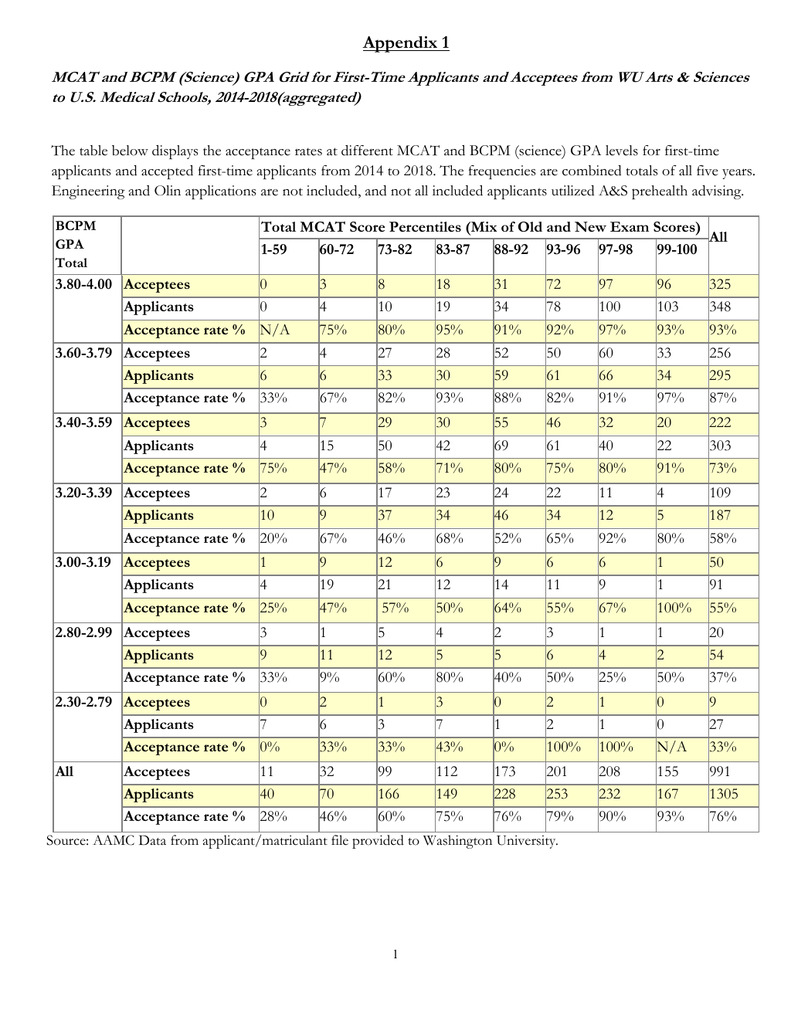- Joined
- Apr 6, 2014
- Messages
- 14,146
- Reaction score
- 22,778
Back when I frequented the premedical side of SDN, one of the common debates was about whether the intense competition at highly ranked undergrads was accounted for by the admissions committees of highly ranked medical schools. Do you get any forgiveness for getting B grades? How many people end up enrolling at the top ranking MDs?
Lucky for us, there's now a huge dataset from the WashU prehealth office to look at as a case study.
The following is pulled from a total of n=1,226 WashU premeds who successfully matriculated to medical schools between 2014-2018. If N<5, they did not give data. If N<10, they gave only average values instead of Inter Quartile Ranges. MCAT values are percentiles (e.g. 96-100 equates to 518-524+).
Table:

Takeaways:
Lucky for us, there's now a huge dataset from the WashU prehealth office to look at as a case study.
The following is pulled from a total of n=1,226 WashU premeds who successfully matriculated to medical schools between 2014-2018. If N<5, they did not give data. If N<10, they gave only average values instead of Inter Quartile Ranges. MCAT values are percentiles (e.g. 96-100 equates to 518-524+).
Table:
Takeaways:
- Compared to the MSAR IQRs, there does not appear to be a substantial relaxing of GPA (or MCAT) expectations at highly ranked medical schools.
- About 10 people per year (<5%) land at the perennial Top 5.
- About 25% land in the Top 20.
- WashU kept as many people at home as it sent to the rest of the Top 10 combined (82 stayed home, between 82-90 went to all the rest)
- Largely due to the fraction saying home, there's a big regional bias. The four schools WashU, Northwestern, U Chicago and Michigan collectively got 50% of all the Top 20 matriculants.


